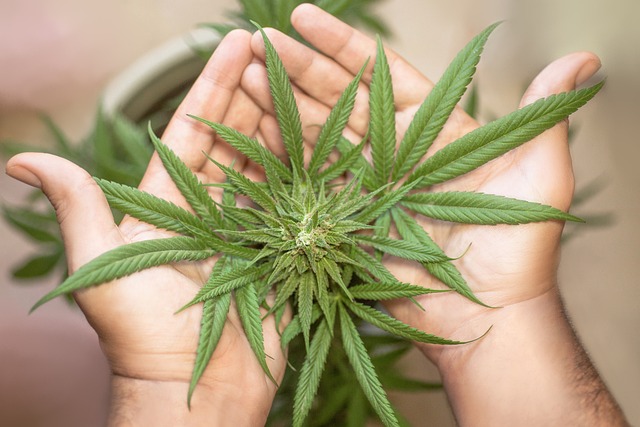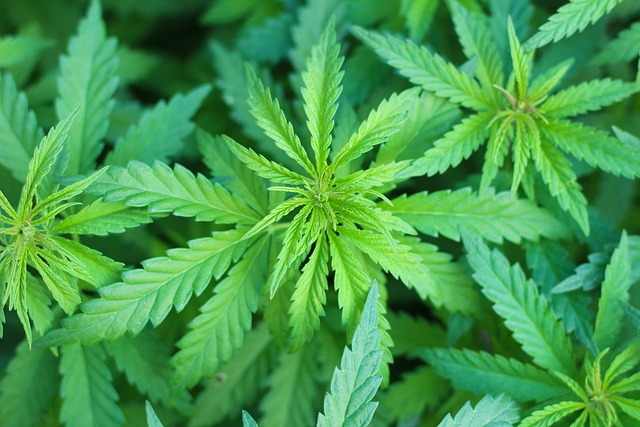THCA, a non-psychoactive cannabinoid found in cannabis and legally available in Pennsylvania as part of its medical marijuana program, has gained attention for its potential health benefits. Unlike THC, it doesn't alter the mind yet is credited with anti-inflammatory, neuroprotective, and analgesic properties, making it a therapeutic option for conditions like chronic pain, inflammation, and neurological disorders. Studies show that THCA interacts with the endocannabinoid system by binding to CB1 and CB2 receptors, suggesting its wide-ranging potential benefits. In Pennsylvania, THCA flower is a popular choice among medical marijuana patients and enthusiasts, with access regulated through state dispensaries. As research continues to uncover more about THCA's mechanisms and effects, its role in medical cannabis applications within legal frameworks, particularly in states like Pennsylvania, is becoming more defined, offering a promising alternative for those seeking the benefits of cannabinoids without psychoactive side effects.
Exploring the multifaceted benefits of THCA (Tetrahydrocannabinolic Acid) flowers, this article delves into their potential health advantages, legal standing in Pennsylvania, and how they compare to THC. As we navigate the science behind THCA and its anti-inflammatory and neuroprotective properties, we consider its role in pain management and cancer research, shedding light on why THCA is gaining attention within holistic health practices. With a focus on THCA’s legal status in Pennsylvania, we also discuss how consumers can responsibly and safely incorporate these flowers into their wellness routines. From dosing guidelines to sustainable cultivation, this comprehensive guide covers the myriad aspects of THCA flowers, ensuring an informed understanding of their place in health and legislation.
- THCA Flower Benefits Unveiled: A Comprehensive Overview
- The Science Behind THCA: Potential Health Advantages
THCA Flower Benefits Unveiled: A Comprehensive Overview

delta-9-tetrahydrocannabinolic acid (THCA) is a non-psychoactive cannabinoid found in the cannabis plant that has garnered attention for its potential health benefits. In Pennsylvania, where certain forms of medical marijuana are legal, THCA flower is gaining traction among patients and enthusiasts alike. The THCA molecule, which precedes delta-9-tetrahydrocannabinol (THC) when heated, is said to possess a range of therapeutic properties without the psychoactive effects associated with its decarboxylated counterpart. Advocates of THCA flower point out that it may offer anti-inflammatory, neuroprotective, and analgesic effects, which can be beneficial for conditions such as chronic pain, inflammation, and certain neurological disorders. Studies suggest that THCA interacts with the body’s endocannabinoid system, influencing cannabinoid receptors like CB1 and CB2, potentially leading to a host of health benefits. In Pennsylvania’s regulated market, consumers have access to THCA flower, allowing them to explore its advantages directly or through various consumption methods. As research continues to unfold, the role of THCA in wellness and therapeutic practices is becoming increasingly clear, highlighting its value within the medical cannabis community, especially where it’s legal such as Pennsylvania.
The Science Behind THCA: Potential Health Advantages

Delta-9-tetrahydrocannabinolic acid (THCA) is a non-psychoactive cannabinoid found in the Cannabis sativa plant, which has garnered attention for its potential health advantages. As research continues to evolve, scientists are uncovering the myriad of therapeutic properties that THCA may offer. Preliminarily studies suggest that THCA could possess anti-inflammatory, neuroprotective, and analgesic effects without the psychoactive impact associated with its decarboxylated form, THC. In particular, THCA’s interaction with the body’s endocannabinoid system may contribute to its therapeutic potential, influencing various physiological processes including pain sensation, immune function, and mood regulation.
In the context of legal considerations, it’s relevant to note that while the federal government in the United States maintains a stance on cannabis that classifies all forms of THC as controlled substances, certain states have enacted legislation that allows for the use and research of THCA-rich products. For instance, THCA flowers are legal in Pennsylvania under its medical marijuana program, provided they are obtained through state-licensed dispensaries. This legal framework enables researchers and consumers to explore the benefits of THCA within a regulated environment, contributing valuable insights into its potential role in natural medicine and holistic health practices.
THCA, or tetrahydrocannabinolic acid, has garnered attention for its potential health benefits, which are currently being explored within the scientific community. As THCA flower benefits become more evident and its legal status, such as in Pennsylvania where it is recognized under certain regulations, interest in this non-psychoactive compound continues to grow. This article has delved into the comprehensive overview of these benefits and elucidated the science behind them, offering insights into how THCA may contribute positively to health and well-being. As research progresses and legal frameworks evolve, the potential of THCA flower is poised to be fully realized, promising a new chapter in the realm of natural remedies and supplements for those within states like Pennsylvania where it is legal.
